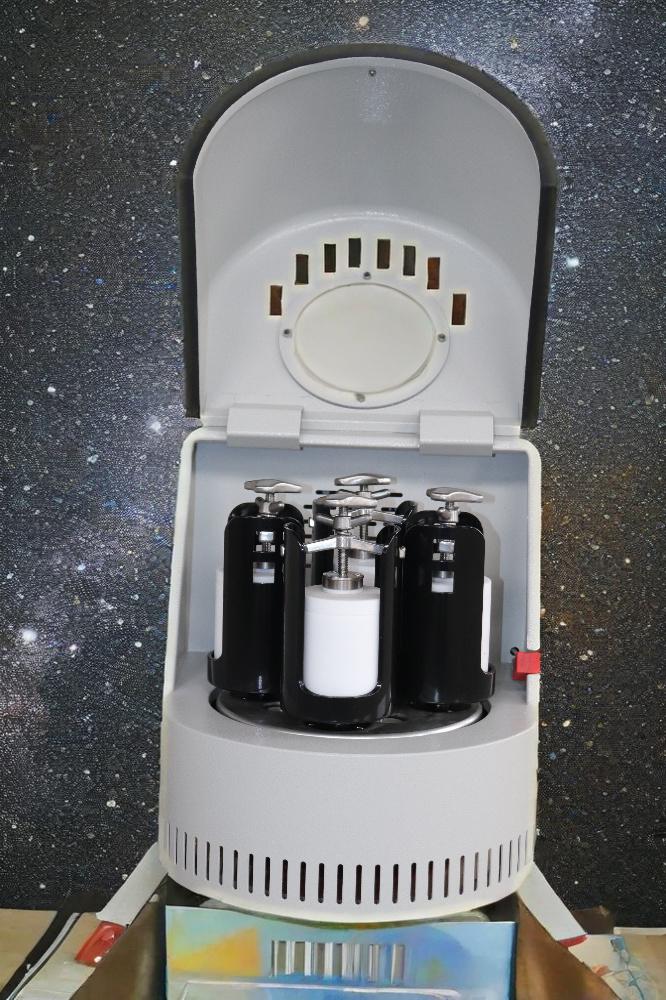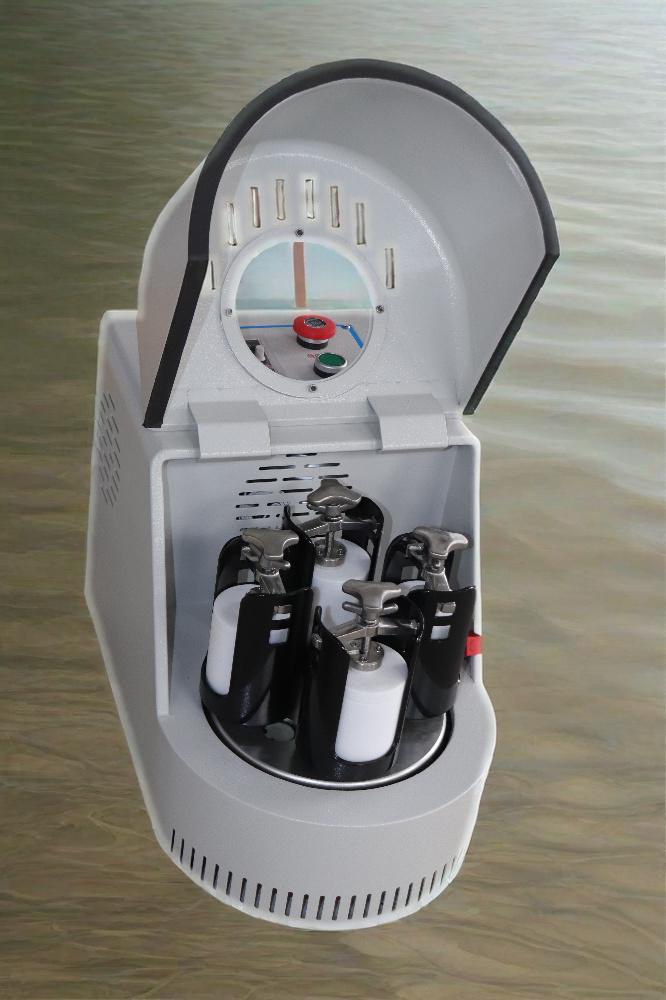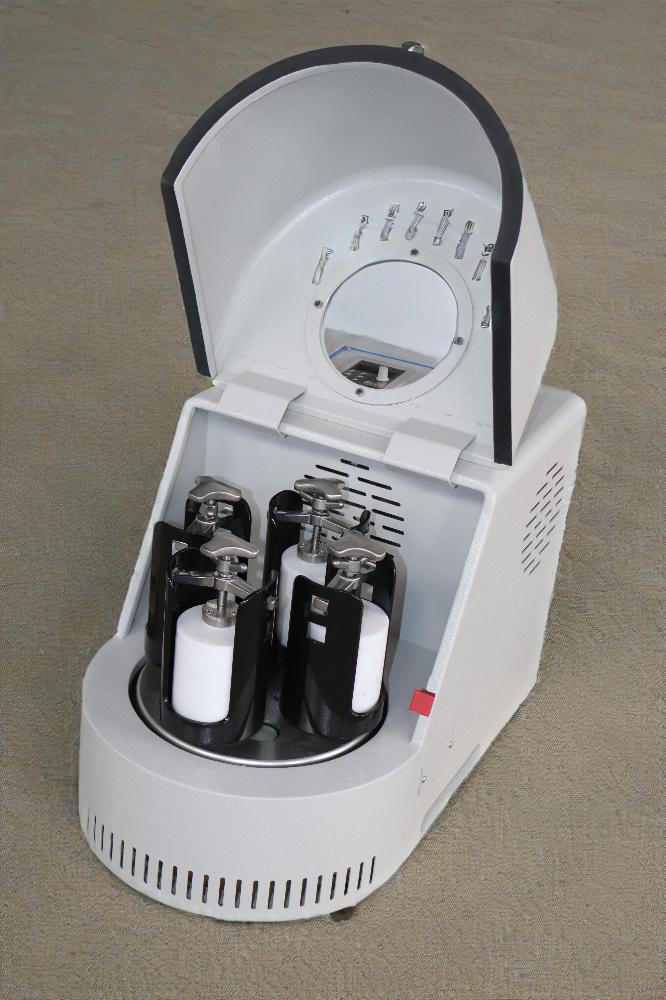Brief History of Laboratory Ball Mill
How the Planetary Ball Mill Was Developed:
Around 1960, German scientific and technical personnel developed high-energy grinding that achieved high-speed motion based on the motion rules of planets, breaking through the principles of traditional ball milling and improving grinding efficiency.
Epoch-making innovation: Centrifugal force + rotation superposition, energy density increased by 10 times, grinding efficiency and particle size have been greatly improved.

The development history of the PM series of planetary ball mills:
Around 1990, the PM 100 planetary ball mill was launched, becoming the world's first laboratory-grade planetary ball mill to achieve commercial operation.
Modernized iterative update: PM 200/400 series ball mills have achieved intelligent instrument control and multifunctionality.
Classification by grinding particle size
Particle size range Applicable models Typical applications
>100 μm PM 100 (conventional grinding) Coarse grinding of soil, ore, non-metal, metal
10–100 μm PM 200 Fine grinding of metal alloys, ceramic powders, pigments, coatings, etc.
<1 μm PM 400 (nanoscale) Micronization and nano-powdering of quantum dots, graphene, and pharmaceutical fine materials
Why Planetary Ball Mill?

The new motion principle makes grinding more refined: the tank rotates + the equipment revolves, and the grinding efficiency is at least 50% higher than that of traditional ball mills.
Controllable grinding particle size: The grinding particle size of the material can be accurately controlled by adjusting the speed of the equipment (100–650 RPM) and the grinding time.
Versatility of the new planetary ball mill: supports a variety of grinding modules: dry grinding, wet grinding, vacuum grinding, cryogenic grinding, etc. (optional modules are required).
Safety design: automatic shutdown for over-temperature protection, mechanical lock to prevent accidental opening of the cover, and external protective shell, etc.
PM 100 | PM 200 | PM 400 Comparison Guide
Parameters PM 100 PM 200 PM 400
Maximum speed 650 RPM 800 RPM 1000 RPM
Volume of tank 12–500 mL 50–1000 mL 12–500 mL (Nano tank)
Power 750 W 1.5 kW 2.2 kW
Typical applications Homogenization of conventional materials High hardness materials (such as SiC) Nanomaterials, battery electrodes
Price range (economical) (high performance) (nanoscale)

Reasons to choose us
Patented technology:
Core patented technology with more than 40 independent intellectual property rights
Customer group:
Successfully provided equipment support for 50+ scientific research institutions and 200+ manufacturing companies. Products are widely used in new materials, new energy, chemical, pharmaceutical and other industries, with a customer repurchase rate of more than 82%.
Global service network:
24/7 technical support (covering 60+ countries).
Competitive product comparison (VS Retsch & Fritsch)
Function TENCAN
PM 100 Anonymous PM400 Anonymous PM 200
Maximum speed 650 RPM 600 RPM 700 RPM
Noise level 55 dB 60 dB 58 dB
Intelligent control Touch screen + APP Mechanical knob Basic digital panel
Tank compatibility 6 materials available Only stainless steel/zirconia 4 materials available
Brand endorsement
Authoritative certification:
The company has passed ISO9001 quality management system, CE, SGS and other system certifications
Industry recognition:
Typical customers include Tsinghua University, Peking University, Chinese Academy of Sciences, China Aerospace, BYD, Huawei, Foxconn, German Aerospace Center, Harvard University, etc. Customer case:
Central South University of China purchased Tianchuang vertical planetary ball mill in Changsha
FAQ (Frequently Asked Questions)
Q1: Can PM 100 be upgraded to the performance of PM 400?
→ *No, the hardware structure is different, but a nano tank can be added (limited to PM 200/400). *
Q2: How to prevent leakage during wet grinding?
→ Use silicone seal + PTFE tank, pressure self-locking design.
Q3: How to choose the material of the grinding ball?
→ It is recommended to be consistent with the tank material (such as zirconia tank with zirconia balls).
Call to Action (CTA)
Consult now for your exclusive guide
Email: tencan-ballmill@outlook.com
Whatsapp:8619974909729

